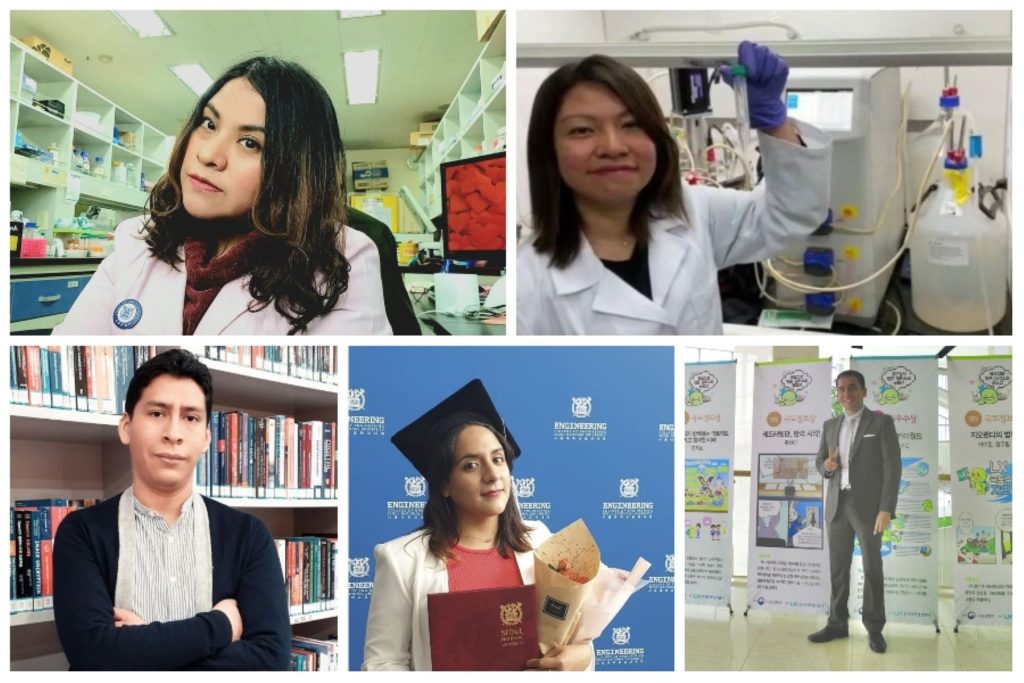South Korea, a country at the forefront of scientific research and technological development, welcomes a community of Peruvian researchers who meet the challenges of studying or working abroad, while adapting to the culture, language, and level of demand in a competitive nation.
On this note, we present the stories and research projects of a group of Peruvian professionals who have taken advantage of the opportunities offered by the Asian country to strengthen their skills, such as
which funds undergraduate and graduate studies.
Using bacteria to treat household wastewater
Fishing net identification and monitoring system
Getting there wasn’t easy. When I was studying electronic engineering in Peru University of Applied Sciences (UPC) Apply for a scholarship to continue his studies in South Korea. Thanks to his effort and commitment he won it; From that moment his career took off.
The Fishing Net Monitoring System It serves to help identify all the fishing nets used in the Korean Sea, allowing for more efficient management. Likewise, it will be one of the first systems of its kind to be developed worldwide.
Also manages Caceres Nagaru A A project to locate and track wireless sensors based on evolutionary algorithms and artificial intelligence. “It’s a system very similar to GPS that helps locate the sensors. For example, you have a robot in a mine, where there are often toxic gases and people can’t go in, so the robots are sent out. In order to navigate between These robots, there is a need for the localization systems that we create,” he points out.
Analysis of the characteristics of Peruvian plants
This Peruvian researcher studied nutrition at the Universidad Nacional Mayor de San Marcos, and also received a scholarship from the Korean government for a master’s degree in the School of Food and Nutritional Sciences in Halim University.
In his research, he focused on the isolation of compounds of seven types by an enzymatic system, analysis of toxicity, antioxidants, and other laboratory (cell examination) examinations. This study, on a chemical level, allowed him to discover the potential properties of these in relation to diseases such as diabetes and obesity.
Therapy robots for people with dementia and autism
Whydots Inc. Develop another robot Targeted at people with autism. The design is penguin-inspired, is shock or fall resistant and seeks to help teens under 16 years old with therapy.
“This project is not for generating money, although it is being developed by a startup company. It didn’t start with the question of how we are going to make money, but how we are going to solve different social problems. The Korean government liked the idea and decided to fund it,” says Velez.
Machine learning to analyze fire evacuation methods
His research focuses on presentation Artificial intelligence techniques that allow to evaluate the best evacuation routes In the event of a disaster within this type of facility, analyze the vulnerability components of the infrastructure.
“Initially, the entire workspace is analyzed, which will be an infrastructure, and BIM . is created [modelado de información del edificio] The data is categorized by thematic layers. An algorithm is then developed to migrate them to a geospatial component linked to GIS.”
Cleansing the soil of heavy metals
During her master’s degree, the Peruvian engineer investigated low-cost materials that can be used in the method of chemical solidification and stabilization Treating soil contaminated with heavy metalsLike arsenic or lead.
Torres stresses that in Korea there is a lot of support and funding for research and explains that even professors can bring together students who are interested in developing a topic. It also calls on young women not to give up their idea of studying science and traveling abroad; He is pleased to know that although some contributions are small, they all contribute to development.

“Social media evangelist. Student. Reader. Troublemaker. Typical introvert.”

:quality(85)/cloudfront-us-east-1.images.arcpublishing.com/infobae/TEQF6EONZRFGLLLDIDD4L2O4EE.jpg)

:quality(75)/cloudfront-us-east-1.images.arcpublishing.com/elcomercio/XU32LRAEZFDDPNVHLFU3CKVBYY.jpg)



More Stories
Venezuela ranks fourth in female leadership in science and technology in Latin America
In Portuguesa and Sucre they explore the wonderful world of science
The university court overturns the expulsion of two teachers and a chemical sciences student